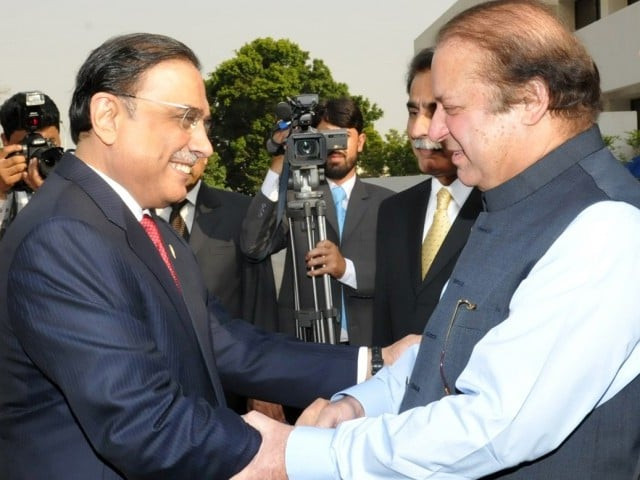Pakistan's laws facilitate money laundering, tax evasion
Economic Reforms Act, Income Tax Ordinance, prevent authorities from taking action

Economic Reforms Act, Income Tax Ordinance, prevent authorities from taking action PHOTO: PID
Over $9 billion are illegally remitted outside Pakistan, according to an October 2013 statement of the then governor of the State Bank of Pakistan (SBP), Yaseen Anwar. No estimates of the money transferred abroad through foreign currency accounts, opened and protected under the Protection of Economic Reforms Act 1992, are available.
Mushtaq Raisani case: Quetta bakery raid yields Rs5.7m
Interestingly, Nawaz Sharif had enacted this law during his first stint as prime minister. After its enactment, industrialists and politicians whitened their illegal money, according to court records and statements of that period.
Sections 5 and 9 of the Protection of Economic Reforms Act, 1992 and Section 111(4) of the Income Tax Ordinance, 2001 guarantee complete immunity.
The Protection of Economic Reforms Act was passed in July 1992 for “creating a liberal environment for savings and investments and to create confidence in the establishment and continuity of liberal economic policies”. Before the passage of this act, the country had a controlled regime of foreign exchange. The government had de-regularised investment, banking, finance, exchange and payment system and holding and transfer of currencies.
“All citizens of Pakistan resident in Pakistan or outside Pakistan and all other persons shall be entitled and free to bring, hold, sell, transfer and takeout foreign exchange within or out of Pakistan in any form and shall not be required to make a foreign currency declaration at any stage nor shall anyone be questioned in regard to the same,” says Section 4 of the act.
PM Nawaz visits Gilani House to garner support on Panama leaks
Clause 5 grants complete immunity to foreign currency accounts holders against any inquiry from the Income Tax Department about the source of financing of foreign currency accounts. The balances in the foreign currency accounts also remain exempted from levy of wealth tax and income tax and compulsory deduction of Zakat at source. It also ensures complete secrecy. Even the central bank cannot impose restrictions on these accounts.
However, in December 1999, then president Muhammad Rafiq Tarar promulgated an ordinance to bring an amendment that withdrew immunity from inquiries to citizens of Pakistan residing in Pakistan in respect of any balance in new foreign currency accounts opened after December 16, 1999.
In 2001, then military dictator Pervez Musharraf promulgated the Foreign Currency Accounts Protection Ordinance, ensuring complete protection to foreign currency accounts holders. Tax officials argue that their hands are tied under the 1992 act and the 2001 Foreign Currency Account Ordinance.
Similarly, Section 111 (4) of the income tax law is facilitating whitening of illegal money through foreign remittances. According to rough estimates, one-fifth of about $19 billion foreign remittances are domestically generated black money that is being whitened under Section 111-4 of the Income Tax Ordinance.
Pakistan cannot prosper without eradicating corruption, says Imran
In the presence of these legal lacunas, no judicial commission can establish anything against any accused named in the Panama leaks, according to tax experts.
The Panamagate scandal was the result of legal lacunas in the laws, and the government has undertaken an exercise to plug them, Finance Minister Ishaq Dar told The Express Tribune.
He said the government was ready to revisit the Protection of Economic Reforms Act and Section 111-4 of the income tax law to plug these loopholes. Dar said the recommendations in this regard would be finalised very soon and will be submitted either before or after the budget for approval.
Dar, however, maintained that these legal changes would take effect from future and will not have implications on the transactions carried out in the past.
Officials said the SBP, the Securities and Exchange Commission of Pakistan (SECP), and the Federal Board of Revenue (FBR) have submitted separate reports to Dar but the finance minister was not happy with them.
Published in The Express Tribune, May 22nd, 2016.



















COMMENTS
Comments are moderated and generally will be posted if they are on-topic and not abusive.
For more information, please see our Comments FAQ